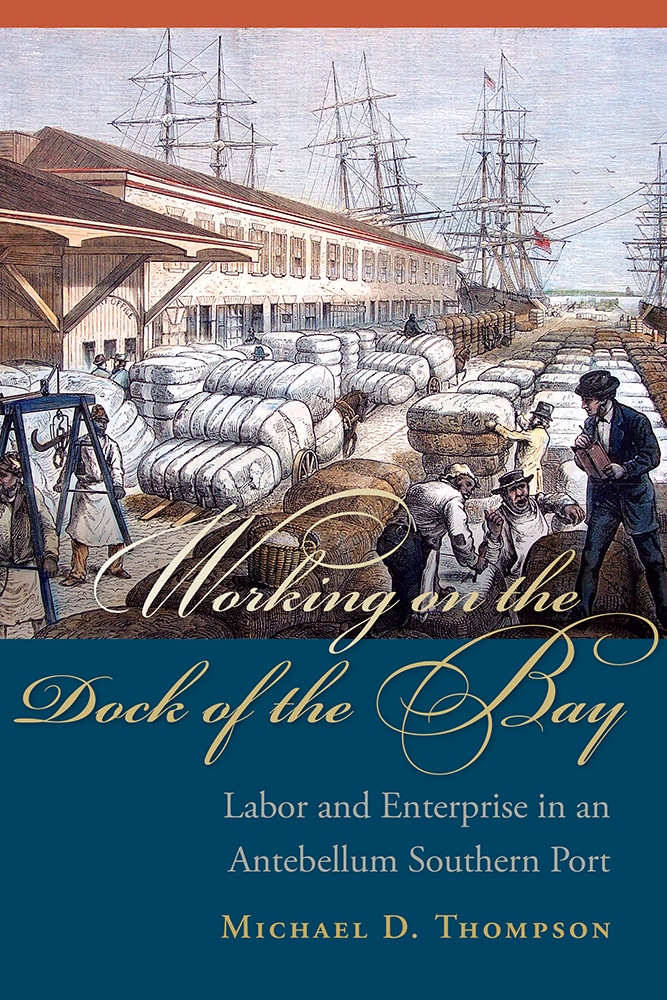Black History Month Sale: 40% off all books, plus FREE SHIPPING on all U.S. orders over $50 | Use code JBHM26

Size: 6 x 9
Pages: 312
Illustrations: 28 halftones
Michael D. Thompson
The inclusion of this book in the Open Carolina collection is made possible by the generous funding of
"As the first book-length study of southern waterfront workers in the years before the Civil War, Thompson's book breaks important new ground."—H-Net Reviews
"In terms of sheer amount of research done, it would be hard to better Michael D. Thompson. . . . What emerges is [a] portrait of the antebellum Charleston working class in all its complexity and contingency."—Journal of Southern History
"Thompson has created an exemplary and comprehensive labour history of Charleston's antebellum dockside."—The Northern Mariner
"Thompson's portrait of a racial waterfront in flux offers a thick description of everyday life and labor, as well as some astute insights as to how boundaries—white and black, free and enslaved, sick and healthy—crosscut the wharves along the Cooper and Ashley rivers."—American Historical Review
". . . Thompson provides a valuable and praiseworthy scholarly contribution that should be read by anyone interested in the history of slavery, African Americans, labor, and the South."—Journal of American Ethnic History
"[Thompson] provides fresh insights into class and race relations in the city, and contributes much-needed context for the better-documented labor history of southern dock workers in later periods."—Journal of American History
"Thompson's meticulously researched book is an outstanding work of social history. His moving of urban workers from the periphery to the center of Charleston's story is a role model for discovering the lives of those often ignored in histories of the Old South. He describes brilliantly the activities and activism of black and white waterfront workers, indicating clearly the vital nature of their contribution to the antebellum southern economy. Ultimately, he highlights that to understand the successes of failures of post-Civil War Reconstruction one must begin in the fluid race and class relations of the pre-War era."—David Gleeson, professor of American history, Northumbria University
"The topics Thompson addresses are both fresh and significant, and the research upon which this study is built is impeccable. . . . Working on the Dock of the Bay is a superb piece of labor history that engages with many kinds of history and is likely to stand as a landmark for some time to come."—Labor: Studies in Working-Class History
"Meticulous research, lively writing, and balanced interpretations distinguish Michael Thompson's original and revealing history of Charleston's antebellum dockworkers, black and white, enslaved and free. At the intersection of Atlantic commerce and harvests of rice and cotton, the city's dock workers funneled goods, ideas, and hopes into and out of the antebellum South, as this fine work of historical craftsmanship discloses."—Michael P. Johnson, professor of history, Johns Hopkins University
". . . Working on the Dock of the Bay comes highly recommended. It is an unusually clear and well-written work of social history, based on impressive research, and makes an important contribution to our understanding of the antebellum urban South."—H-Slavery
Copyright 2026
Website By Morweb.org